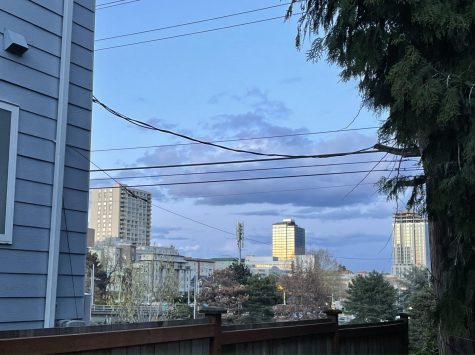Here comes the sun
Congress waits for House to pass Sunshine Protection Act
April 20, 2022

Ever wondered why Daylight Saving Time still exists? As it turns out, some U.S. politicians think it should not.
In a bipartisan effort, Democratic Sen. Patty Murray, D-W.A., co-sponsored Republican Sen. Marco Rubio’s, R-F.L., bill called the Sunshine Protection Act. The bill was unanimously passed by the Senate in March 2022.
The bill would propose that Americans who are impacted by Daylight Saving Time save their time on changing their clocks twice a year at seasonal intervals. Instead, the bill would make Daylight Saving Time permanent in 2023.
“Adopting permanent daylight savings time would help improve public safety, health, & wellbeing. Washington state has already taken the necessary steps. Let’s get this done,” Sen. Murray said of the Sunshine Protection Act in a Tweet.
The debate about making Daylight Saving Time permanent or switching to Standard Time has been a long-lasting one. In March 2019, Sen. Rubio proposed the Sunshine Protection Act during the pandemic, but ultimately did not succeed.
Sen. Rubio argued in a press release that making Daylight Saving Time permanent for the nation would reduce car crashes and car accidents involving pedestrians, reduce the risk for cardiac issues, stroke and seasonal depression, reduce the number of robberies by 27 percent, benefit the economy, reduce childhood obesity while increasing physical fitness, benefit the agricultural economy and reduce energy usage.
Audrey Hong, fourth-year communication major, supports ending the changing of the clocks and moving towards Standard Time for the health and wellness benefits.
“I am leaning more towards ending Daylight Saving Time because the time change misaligns our bodies natural circadian rhythm, which follows a 24-hour cycle, with the time on the clock during Daylight Saving Time,” Hong said. “In my experience, it has been difficult starting my a.m. routine when the sun rises later, and even harder to get into my p.m. routine when the sun sets at almost 8 p.m.”
Kit Nowicki, second-year sociology major, believes that the historical implementation of Daylight Saving Time is outdated and overdue for a change.
“Daylight Savings was first adopted in 1916 as a means to conserve energy during WWI, and it makes sense that they would want to do that. War times were times of rationing, and early technology and electricity weren’t very energy efficient or well understood,” Nowicki said. “So, if you’re living in the early 20th century during a world war, and you’re desperate to cut down on energy, yeah, it makes sense that you would want longer days in the summer and shorter days in the winter.”
Nowicki was surprised that the changing of the clocks for Daylight Saving Time has lasted as long as it has.
“I spent two years living in Arizona, which stopped participating in Daylight Savings back in 1968, and I never even noticed it was gone,” Nowicki said. “It’s just not something you really think about until the clock in your car is just an hour behind or ahead for six months out of the year because even though Daylight Savings has come twice a year for as long as you’ve been alive, it never becomes any more prevalent. It’s a mild nuisance.”
Taylor Van Landuyt, third-year English literature major, doesn’t support the Sunshine Protection Act because the process of changing the clocks twice a year has been instilled as habitual in the American People.
“It seems silly to pass a law for something that has been a habit and routine for Americans for as long as I can remember,” Van Landuyt said. “I just don’t see the reason to make a switch now. We’ve been doing it for 100 years – it’s a habit. Why make a law out of something that people have done for a while.”
While there is much debate to be had over the issue, the bill will continue to move through the appropriate bodies of legislation for approval. The Sunshine Protection Act was unanimously passed by the Senate in March 2022, and now awaits the final vote in the House of Representatives, where it is currently stalled.


























































































